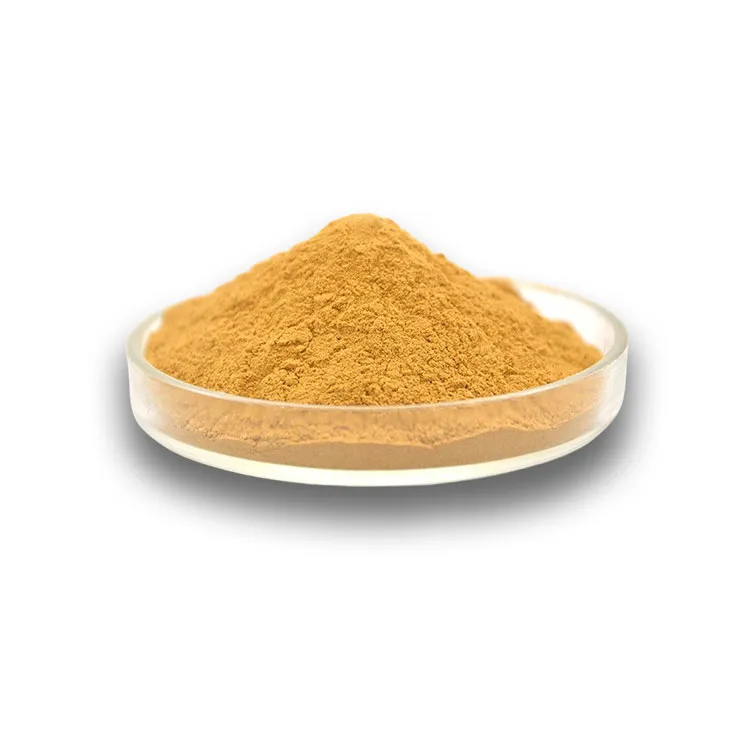- 0086-571-85302990
- sales@greenskybio.com
Is andrographis paniculata extract powder beneficial for diabetes? Are these all safe and applicable for diabetic patients?
2024-11-14

1. Introduction
Diabetes is a chronic metabolic disorder that affects millions of people worldwide. Management of diabetes often involves lifestyle modifications, medications, and sometimes complementary and alternative therapies. Andrographis paniculata, a plant native to South Asia, has been used in traditional medicine for various ailments. In recent years, there has been growing interest in its extract powder and its potential role in diabetes management. This article aims to explore the possible benefits and safety considerations of Andrographis Paniculata Extract Powder for diabetic patients.

2. Chemical Composition of Andrographis Paniculata
Andrographis paniculata contains several bioactive compounds that may contribute to its potential effects on diabetes. One of the most important compounds is andrographolide, which has been the subject of numerous scientific studies.
2.1 Andrographolide
Andrographolide is a diterpenoid lactone with antioxidant, anti - inflammatory, and immunomodulatory properties. These properties may play a role in diabetes management by reducing oxidative stress and inflammation, which are often associated with the development and progression of diabetes. In addition, some studies suggest that andrographolide may have a direct effect on glucose metabolism, although the exact mechanisms are not fully understood.

3. Potential Benefits for Diabetes
3.1 Glucose Regulation
Some in - vitro and animal studies have indicated that Andrographis Paniculata Extract Powder may help regulate blood glucose levels. It may enhance insulin sensitivity, allowing cells to better respond to insulin and take up glucose from the bloodstream. For example, in diabetic rats, treatment with Andrographis paniculata extract has been shown to decrease fasting blood glucose levels. However, it should be noted that more human studies are needed to confirm these findings and determine the appropriate dosage for effective glucose regulation in humans.
3.2 Anti - Inflammatory Effects
Chronic inflammation is a key factor in the development of diabetes - related complications such as neuropathy, nephropathy, and cardiovascular disease. The anti - inflammatory properties of Andrographis Paniculata Extract Powder may help reduce the risk of these complications. By suppressing inflammatory cytokines and pathways, it may protect the tissues and organs from the damaging effects of inflammation. For instance, it may reduce inflammation in the pancreas, which could potentially improve insulin production and secretion.
3.3 Antioxidant Activity
Oxidative stress is increased in diabetes due to high blood glucose levels. This can lead to cellular damage and dysfunction. Andrographis paniculata extract powder, with its antioxidant properties, may help counteract oxidative stress. It can scavenge free radicals and protect cells from oxidative damage. In particular, it may help protect pancreatic beta - cells, which are responsible for insulin production, from oxidative damage, thereby maintaining normal insulin function.

4. Safety Considerations
4.1 General Safety
When considering the use of Andrographis paniculata extract powder for diabetes, safety is a crucial aspect. In general, when used in appropriate doses, Andrographis paniculata is considered relatively safe for most people. However, some individuals may experience side effects such as gastrointestinal discomfort, including nausea, vomiting, and diarrhea.
4.2 Drug Interactions
There is a potential for drug interactions with Andrographis paniculata extract powder. For diabetic patients who are taking medications such as metformin or insulin, it is important to be cautious. Andrographis paniculata may interact with these medications and affect their efficacy or increase the risk of side effects. For example, it may potentiate the hypoglycemic effect of insulin, leading to an increased risk of low blood sugar levels. Therefore, it is essential that diabetic patients consult their healthcare providers before using Andrographis paniculata extract powder.
4.3 Purity and Quality
The purity and quality of Andrographis paniculata extract powder on the market can vary. Some products may be contaminated with other substances or may not contain the claimed amount of active ingredients. Using low - quality or contaminated products can pose risks to health. It is advisable to choose products from reliable sources and look for those that have been tested for purity and quality.

5. Current Research and Evidence
Although there have been some promising in - vitro and animal studies on the potential benefits of Andrographis paniculata extract powder for diabetes, the evidence from human studies is still limited. Most of the existing human studies are small - scale and short - term.
5.1 Clinical Trials
Some small clinical trials have been conducted to evaluate the effect of Andrographis paniculata extract on blood glucose control in diabetic patients. However, the results have been inconsistent. Some trials have shown a mild improvement in blood glucose levels, while others have not found significant differences compared to the control group. More large - scale, well - designed clinical trials are needed to provide more conclusive evidence.
5.2 Meta - Analyses
Meta - analyses of the available studies on Andrographis paniculata and diabetes have also yielded mixed results. These analyses have highlighted the need for further research with standardized protocols to better assess the true potential of Andrographis paniculata extract powder in diabetes management.
6. Dietary and Lifestyle Considerations
Even if Andrographis paniculata extract powder shows potential benefits for diabetes, it should not be considered a substitute for a healthy diet and lifestyle. Diabetic patients are advised to follow a balanced diet rich in fruits, vegetables, whole grains, and lean proteins.
6.1 Diet
- Controlling carbohydrate intake is crucial for blood glucose management. Diabetic patients should choose complex carbohydrates over simple sugars.
- Increasing dietary fiber intake can help improve glycemic control. Fiber - rich foods such as legumes, nuts, and seeds are beneficial.
- Limiting saturated and trans fats can reduce the risk of cardiovascular complications associated with diabetes.
6.2 Exercise
Regular physical activity is essential for diabetic patients. Exercise can improve insulin sensitivity, lower blood glucose levels, and reduce the risk of complications.
- Aerobic exercises such as walking, jogging, and cycling are recommended.
- Strength training can also be beneficial as it helps build muscle mass, which in turn can improve glucose metabolism.
7. Conclusion
In conclusion, Andrographis paniculata extract powder shows some potential benefits for diabetes in terms of glucose regulation, anti - inflammatory effects, and antioxidant activity. However, the evidence from human studies is still insufficient, and more research is needed. Additionally, safety considerations such as potential side effects, drug interactions, and product quality must be taken into account. Diabetic patients should not rely solely on Andrographis paniculata extract powder for diabetes management but should continue to follow a comprehensive approach that includes a healthy diet, regular exercise, and appropriate medical treatment under the guidance of healthcare providers.
FAQ:
Q1: What are the potential benefits of Andrographis paniculata extract powder for diabetes?
Andrographis paniculata extract powder may have several potential benefits for diabetes. It might help in regulating blood sugar levels. Some studies suggest that it could enhance insulin sensitivity, which is crucial for proper glucose metabolism in diabetic patients. Additionally, it may possess antioxidant properties that can protect the body's cells from damage caused by high blood sugar levels over time. However, more research is needed to fully confirm these effects.
Q2: How does Andrographis paniculata extract powder regulate blood sugar?
The exact mechanism by which Andrographis paniculata extract powder regulates blood sugar is not fully understood. It may interact with certain enzymes involved in glucose metabolism. For example, it could potentially influence the activity of enzymes like glucokinase, which plays a role in the first step of glucose metabolism in the liver. It may also affect insulin signaling pathways, helping cells to respond better to insulin and thus take up glucose more efficiently. But again, this is still an area of ongoing research.
Q3: Is Andrographis paniculata extract powder safe for all diabetic patients?
While Andrographis paniculata extract powder may show potential benefits, it is not necessarily safe for all diabetic patients. Some individuals may be allergic to it, which can cause adverse reactions such as skin rashes, itching, or in severe cases, breathing difficulties. Also, it may interact with other medications that diabetic patients are taking. For example, if a patient is on blood - thinning medications, there could be potential interactions that need to be carefully considered. Therefore, it is important for diabetic patients to consult their healthcare providers before using it.
Q4: Are there any side effects of Andrographis paniculata extract powder in diabetic patients?
Yes, there can be side effects. As mentioned, allergic reactions are a possibility. In addition, some people may experience gastrointestinal issues such as nausea, vomiting, or diarrhea. There is also a concern that in high doses, it may have an impact on liver function, although more research is required to determine the exact nature and extent of this potential side effect in diabetic patients specifically.
Q5: How much Andrographis paniculata extract powder should a diabetic patient take?
There is no standard recommended dose for diabetic patients at present. The appropriate dose would depend on various factors such as the patient's overall health, the severity of their diabetes, and whether they are taking other medications. Since there is limited research on its use in diabetes, it is not advisable for diabetic patients to self - prescribe or determine the dosage on their own. Instead, they should consult a healthcare professional who can make an informed decision based on individual circumstances.
Related literature
- The Potential of Andrographis paniculata in Diabetes Management"
- "Andrographis paniculata Extract: Benefits and Risks in Diabetic Populations"
- "Safety and Efficacy of Andrographis paniculata for Diabetes - A Review"
- ▶ Hesperidin
- ▶ citrus bioflavonoids
- ▶ plant extract
- ▶ lycopene
- ▶ Diosmin
- ▶ Grape seed extract
- ▶ Sea buckthorn Juice Powder
- ▶ Beetroot powder
- ▶ Hops Extract
- ▶ Artichoke Extract
- ▶ Reishi mushroom extract
- ▶ Astaxanthin
- ▶ Green Tea Extract
- ▶ Curcumin Extract
- ▶ Horse Chestnut Extract
- ▶ Other Problems
- ▶ Boswellia Serrata Extract
- ▶ Resveratrol Extract
- ▶ Marigold Extract
- ▶ Grape Leaf Extract
- ▶ blog3
- ▶ blog4
- ▶ blog5
-
Organic Tongkat Ali extract powder factory.
2024-11-14
-
How to make powder with ashwagandha extract.
2024-11-14
-
Rosehip extract manufacturers from China.
2024-11-14
-
The best cat's claw extract in nature.
2024-11-14
-
Chinese Dandelion Leaf Extract Suppliers.
2024-11-14
-
Artichoke Leaf Extract
2024-11-14
-
Curcuma Longa Extract/Turmeric extract
2024-11-14
-
Sophora Flavescens Root Extract
2024-11-14
-
Nutmeg Extract
2024-11-14
-
Peppermint Extract Powder
2024-11-14
-
Artichoke Extract
2024-11-14
-
Aguaje Extract
2024-11-14
-
Phellodendron Extract
2024-11-14
-
Bamboo Leaf extract
2024-11-14
-
Apricot Powder
2024-11-14





















